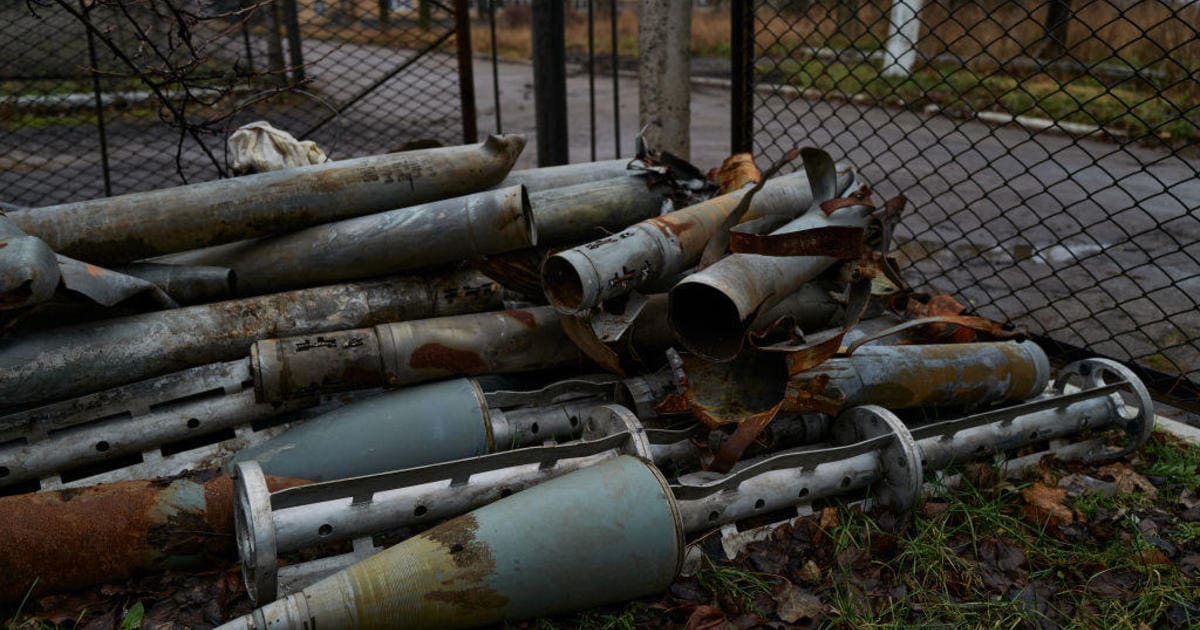
Biden Administration to Provide Cluster Munitions to Ukraine, Despite Controversy
Washington — The Biden administration has announced that it will provide cluster munitions to Ukraine, according to national security adviser Jake Sullivan. The decision comes just before the NATO summit in Lithuania, where President Biden is expected to face questions from allies regarding the U.S.’s choice to supply a weapon that has been banned by more than two-thirds of alliance members due to its high civilian casualty rate. The move has received mixed reactions from Congress, with some Democrats criticizing the plan while a Republican supports it.
Cluster munitions are bombs that disperse smaller bomblets upon detonation. The U.S. views these weapons as a means to provide Ukraine with much-needed ammunition to strengthen its offensive and break through Russian front lines. The decision to supply cluster munitions to Ukraine was the result of months of debate within U.S. leadership, with President Biden ultimately making the final call this week. He stated in an interview with CNN that it was a difficult decision but emphasized Ukraine’s diminishing ammunition supply as a key factor.
Sullivan defended the decision, assuring that the U.S. will provide a version of the munitions with a reduced “dud rate,” meaning fewer bomblets will fail to explode. Unexploded bomblets pose a significant risk to civilians, as they often remain on battlefields and populated areas. While U.S. officials have not provided specific numbers, they have stated that thousands of rounds will be sent to Ukraine. Sullivan acknowledged the risk of civilian harm but argued that the risk of Russian troops advancing and subjugating more Ukrainian civilians due to a lack of artillery is equally intolerable.
Ukraine has provided written assurances that it will use the cluster munitions carefully to minimize the risk to civilians, according to Sullivan. The U.S. also consulted closely with its allies before making the decision, ensuring that Ukraine will not be left defenseless throughout the conflict. However, the use of cluster munitions remains controversial. The International Committee of the Red Cross reports that some cluster munitions have a failure rate of up to 40%, leaving behind unexploded bomblets. Over 120 countries have signed a convention banning the use, production, transfer, and stockpiling of cluster bombs, committing to clear them after use. The U.S., Russia, and Ukraine are among the countries that have not signed this convention.
While most NATO members have signed the ban, several countries near Russia, including Poland and Romania, have not. Ryan Brobst, a research analyst for the Foundation for Defense of Democracies, explained that objections from some NATO allies would not prevent the transfer of cluster munitions into Ukraine. The munitions are part of an $800 million military aid package that the U.S. will send to Ukraine, which also includes armored vehicles and various types of ammunition.
Providing cluster munitions to Ukraine will also alleviate the strain on limited U.S. ammunition stockpiles. The U.S. has been supplying large amounts of 155 mm rounds from its stocks to Ukraine, raising concerns about depleting American reserves. Cluster munitions fired from the same artillery will give Ukraine a highly lethal capability and enable them to target more Russian positions with fewer rounds.
Reactions from allies have been relatively muted thus far. NATO Secretary-General Jens Stoltenberg emphasized that the alliance takes no position on cluster munitions, leaving the decision to individual allies. Germany, which has signed the ban treaty, expressed understanding for the U.S. position but stated that it would not supply cluster munitions to Ukraine. German government spokesman Steffen Hebestreit acknowledged that the U.S. likely made the decision after careful consideration and cited Russia’s past use of cluster ammunition in its aggression against Ukraine.
Despite the controversy surrounding the use of cluster munitions, Ukrainian parliament member Oleksandra Ustinova believes that having this capability will benefit Ukraine. Ukrainian forces have had to disable mines in the territories they have been reclaiming from Russia, and having the ability to handle unexploded ordnance from cluster munitions will be advantageous. The U.N. human rights office, however, has called for an immediate halt to the use of cluster munitions, urging both Russia and Ukraine to join the convention banning their use.
Cluster munitions were last used extensively by the U.S. during the 2003 invasion of Iraq. While they were also employed during the 2001 invasion of Afghanistan, their use has since been heavily criticized due to their indiscriminate nature and the long-term risks they pose to civilians.
In conclusion, the Biden administration’s decision to provide cluster munitions to Ukraine has sparked controversy and divided opinions. While the U.S. sees the munitions as necessary to support Ukraine’s offensive against Russian forces, many allies and critics argue that their use poses significant risks to civilian populations. The move highlights the complex dynamics surrounding the conflict in Ukraine and the difficult decisions faced by the Biden administration in supporting its allies.
Original Story at www.cbsnews.com – 2023-07-07 23:39:00


Comments are closed.